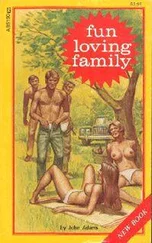Jane puts her hands on her hips and looks down the line of backyards.
“Do you think there’s anything in there?” Franny asks, meaning the house, a ’60s suburban ranch. Franny is thirteen, and empty houses frighten her. But she doesn’t like to be left alone, either. What she wants is for Jane to say that they can eat one of the tuna pouches.
“Come on, Franny. We’re gonna run out of tuna long before we get to Canada.”
“I know,” Franny says sullenly.
“You can stay here.”
“No, I’ll go with you.”
God, sometimes Jane would do anything to get five minutes away from Franny. She loves her daughter, really, but Jesus. “Come on, then,” Jane says.
There is an old square concrete patio and a sliding glass door. The door is dirty. Jane cups her hand to shade her eyes and looks inside. It’s dark and hard to see. No power, of course. Hasn’t been power in any of the places they’ve passed through in more than two months. Air conditioning. And a bed with a mattress and box springs. What Jane wouldn’t give for air conditioning and a bed. Clean sheets.
The neighborhood seems like a good one. Unless they find a big group to camp with, Jane gets them off the freeway at the end of the day. There was fighting in the neighborhood, and at the end of the street, several houses are burned out. Then there are lots of houses with windows smashed out. But the fighting petered out. Some of the houses are still lived in. This house had all its windows intact, but the garage door was standing open and the garage was empty except for dead leaves. Electronic garage door. The owners pulled out and left and didn’t bother to close the door behind them. Seemed to Jane that the overgrown backyard with its toolshed would be a good place to sleep.
Jane can see her silhouette in the dirty glass, and her hair is a snarled, curly, tangled rat’s nest. She runs her fingers through it, and they snag. She’ll look for a scarf or something inside. She grabs the handle and yanks up, hard, trying to get the old slider off track. It takes a couple of tries, but she’s had a lot of practice in the last few months.
Inside, the house is trashed. The kitchen has been turned upside down, and silverware, utensils, drawers, broken plates, flour, and stuff are everywhere. She picks her way across, a can opener skittering under her foot with a clatter.
Franny gives a little startled shriek.
“Fuck!” Jane says. “Don’t do that!” The canned food is long gone.
“I’m sorry,” Franny says. “It scared me!”
“We’re gonna starve to death if we don’t keep scavenging,” Jane says.
“I know!” Franny says.
“Do you know how fucking far it is to Canada?”
“I can’t help it if it startled me!”
Maybe if she were a better cook, she’d be able to scrape up the flour and make something, but it’s all mixed in with dirt and stuff, and every time she’s tried to cook something over an open fire it’s either been raw or black or, most often, both—blackened on the outside and raw on the inside.
Jane checks all the cupboards anyway. Sometimes people keep food in different places. Once they found one of those decorating icing tubes and wrote words on each other’s hands and licked them off.
Franny screams, not a startled shriek but a real scream.
Jane whirls around, and there’s a guy in the family room with a tire iron.
“What are you doing here?” he yells.
Jane grabs a can opener from the floor, one of those heavy jobbers, and wings it straight at his head. He’s too slow to get out of the way, and it nails him in the forehead. Jane has winged a lot of things at boyfriends over the years. It’s a skill. She throws a couple more things from the floor, anything she can find, while the guy is yelling, “Fuck! Fuck!” and trying to ward off the barrage.
Then she and Franny are out the back door and running.
Fucking squatter! She hates squatters! If it’s the homeowner they tend to make the place more like a fortress, and you can tell not to try to go in. Squatters try to keep a low profile.
Franny is in front of her, running like a rabbit, and they are out the gate and headed up the suburban street. Franny knows the drill, and at the next corner she turns, but by then it’s clear that no one’s following them.
“Okay,” Jane pants. “Okay, stop, stop.”
Franny stops. She’s a skinny adolescent now—she used to be chubby, but she’s lean and tan with all their walking. She’s wearing a pair of falling-apart pink sneakers and a tank top with oil smudges from when they had to climb over a truck tipped sideways on an overpass. She’s still flat-chested. Her eyes are big in her face. Jane puts her hands on her knees and draws a shuddering breath.
“We’re okay,” she says. It is gathering dusk in this Missouri town. In a while, streetlights will come on, unless someone has systematically shot them out. Solar power still works. “We’ll wait a bit and then go back and get our stuff when it’s dark.”
“No!” Franny bursts into sobs. “We can’t!”
Jane is at her wits’ end. Rattled from the squatter. Tired of being the strong one. “We’ve got to! You want to lose everything we’ve got? You want to die? Goddamn it, Franny! I can’t take this anymore!”
“That guy’s there!” Franny sobs out. “We can’t go back! We can’t!”
“Your cell phone is there,” Jane says. A mean dig. The cell phone doesn’t work, of course. Even if they still somehow had service, if service actually exists, they haven’t been anywhere with electricity to charge it in weeks. But Franny still carries it in the hope that she can get a charge and call her friends. Seventh graders are apparently surgically attached to their phones. Not that she acts even like a seventh grader anymore. The longer they are on the road, the younger Franny acts.
This isn’t the first time that they’ve run into a squatter. Squatters are cowards. The guy doesn’t have a gun, and he’s not going to go out after dark. Franny has no spine, takes after her asshole of a father. Jane ran away from home and got all the way to Pasadena, California, when she was a year older than Franny. When she was fourteen, she was a decade older than Franny. Lived on the street for six weeks, begging spare change on the same route that the Rose Parade took. It had been scary, but it had been a blast, as well. Taught her to stand on her own two feet, which Franny wasn’t going to be able to do when she was twenty. Thirty, at this rate.
“You’re hungry, aren’t you?” Jane said, merciless. “You want to go looking in these houses for something to eat?” Jane points around them. The houses all have their front doors broken into, open like little mouths.
Franny shakes her head.
“Stop crying. I’m going to go check some of them out. You wait here.”
“Mom! Don’t leave me!” Franny wails.
Jane is still shaken from the squatter. But they need food. And they need their stuff. There is seven hundred dollars sewn inside the lining of Jane’s sleeping bag. And someone has to keep them alive. It’s obviously going to be her.
* * *
Things didn’t exactly all go at once. First there were rolling brownouts and lots of people unemployed. Jane had been making a living working at a place that sold furniture. She started as a salesperson, but she was good at helping people on what colors to buy, what things went together, what fabrics to pick for custom pieces. Eventually they made her a service associate, a person who was kind of like an interior decorator, sort of. She had an eye. She’d grown up in a nice suburb and had seen nice things. She knew what people wanted. Her boss kept telling her a little less eye makeup would be a good idea, but people liked what she suggested and recommended her to their friends even if her boss didn’t like her eye makeup.
Читать дальше












